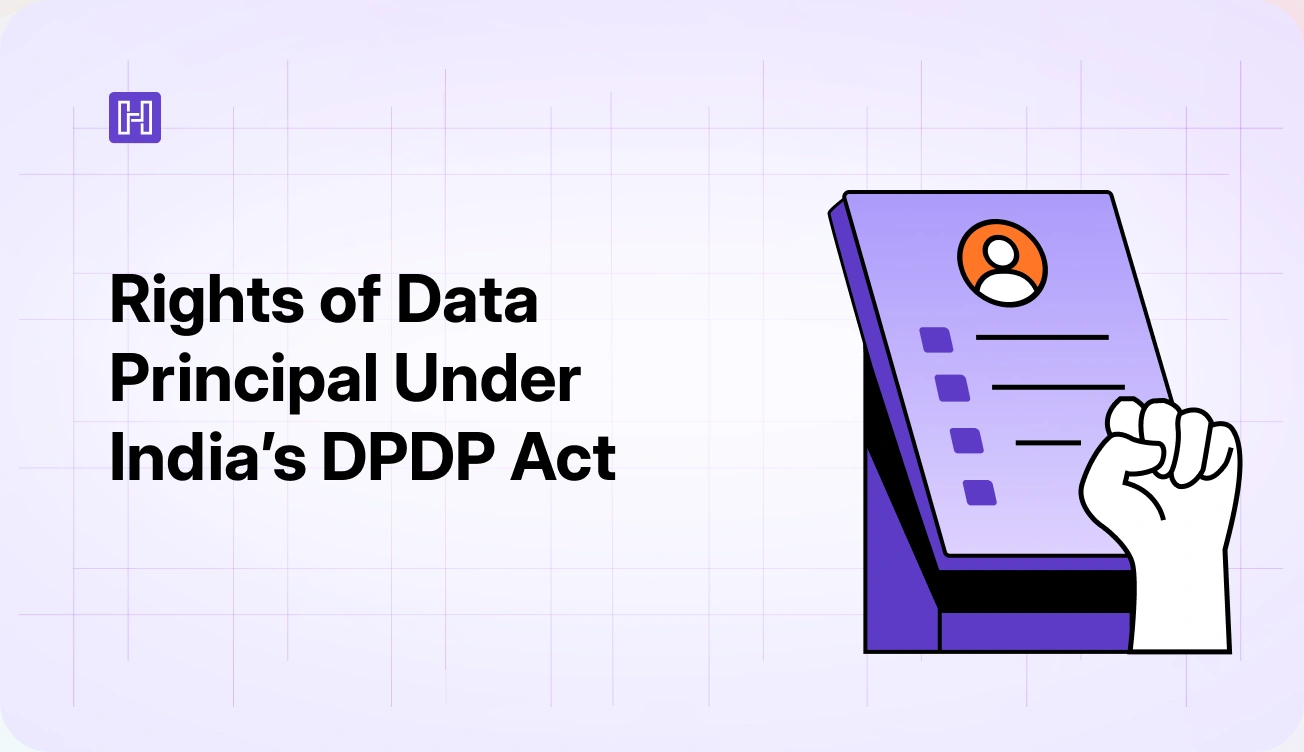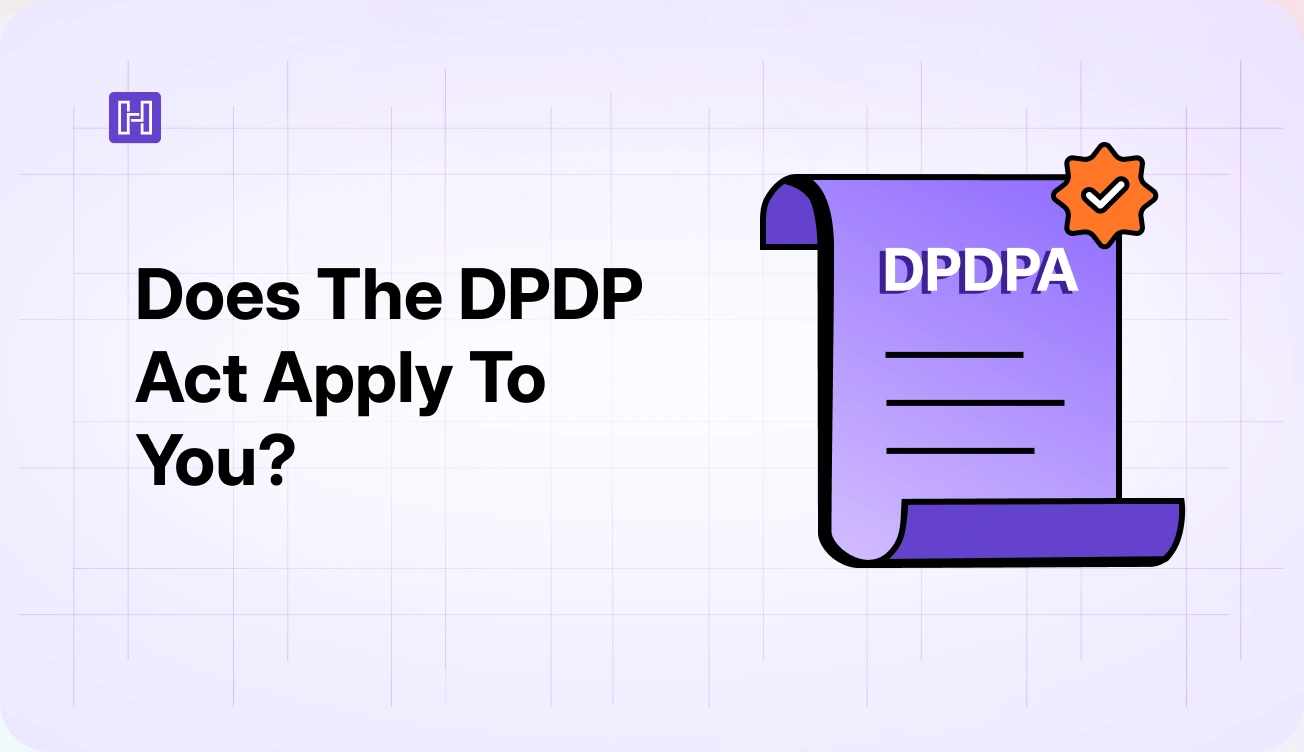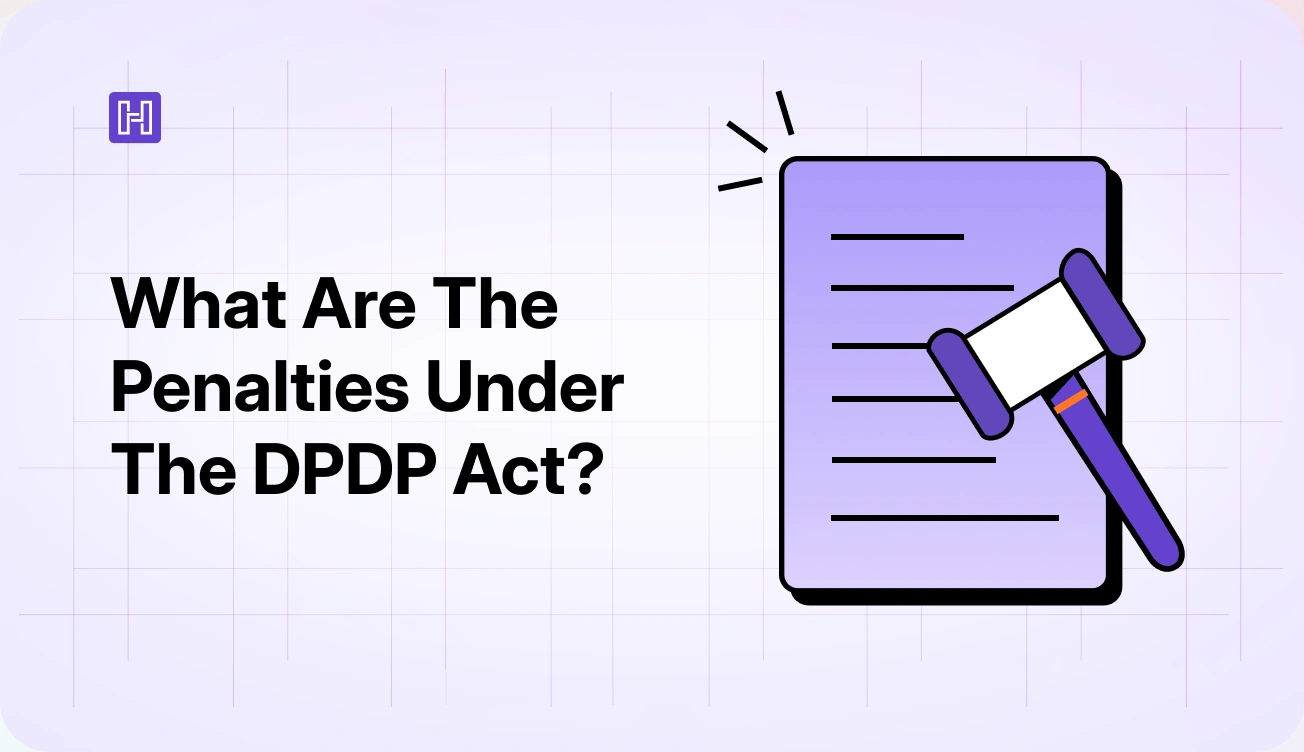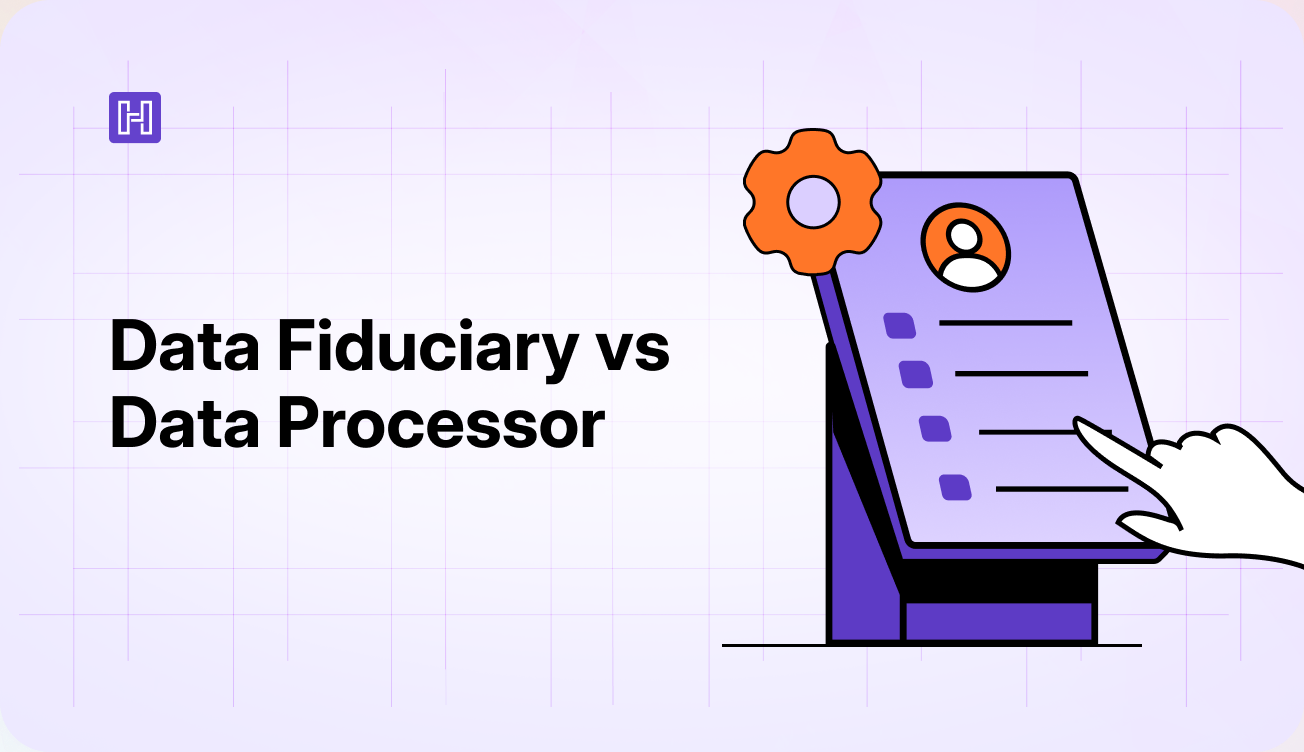Ever wonder how your personal data is collected, shared, or even sold—often without your say? India’s Digital Personal Data Protection (DPDP) Act, 2023 aims to change that. It’s the country’s first major law designed to protect your digital privacy.
For businesses, this means stricter rules on collecting, storing, and using personal data. But for you, it’s a big win! The law gives you more control over your online information, making data handling more transparent and accountable.
But, understanding a legal framework like this can be overwhelming. This guide simplifies your rights as a Data Principal under the DPDP Act, 2023. Whether you’re a business preparing for compliance or an individual curious about your rights, here’s what you need to know.
Who is a Data Principal?
Data Principal under DPDP Act, 2023, is any individual whose personal data is being collected and processed. Think of yourself when you share your details with a company, app, or website—that makes you a Data Principal.
The Act gives special consideration to vulnerable Data Principals: for children under 18, their parents or legal guardians act as their Data Principals. Similarly, for persons with disabilities, their lawful guardians can act on their behalf.
As a Data Principal, you have specific rights over your data and companies must respect these rights when handling your information.
What are those? Let’s find out!
Your rights as a Data Principal under the DPDP Act
The DPDP Act gives the Data Principal more control over their digital footprint.
Whether you’re signing up for a service, using an app, or shopping online, organizations handling your data must respect your rights and ensure transparency.
Here are your four key rights of data principal under the DPDP Act—
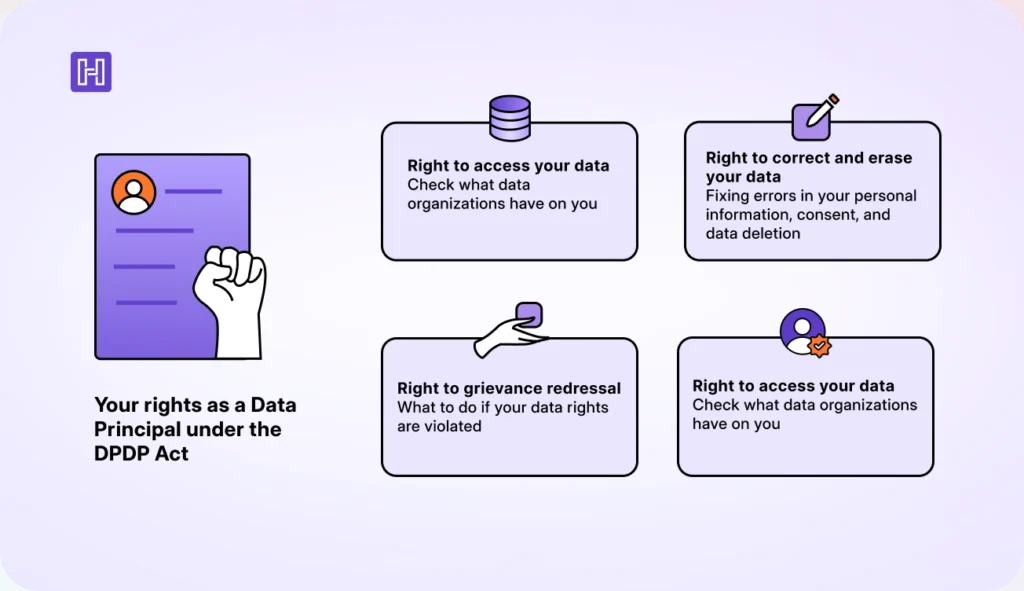
1. Right to access your data (check what data organizations have on you)
You have the right to know what personal data an organization holds about you, why they are processing it, and who they are sharing it with (read third parties). This ensures that businesses don’t misuse or trade your data without your knowledge.
- How this benefits you: Let’s say you’ve been receiving marketing emails from a brand you don’t remember signing up for. You can request them to disclose where they got your email, what other personal details they have stored, and whether they have shared your data with third parties.
- Actions you can take: If they can’t justify how they obtained your data, you can demand its deletion or restrict further use.
You can request to receive this information in English or any language listed in the Eighth Schedule of the Constitution
2. Right to correct and erase your data (fixing errors in your personal information, consent, and data deletion)
If a company has incorrect or outdated personal information about you, you can ask them to correct it. Additionally, if your data is no longer needed for its original purpose or you withdraw your consent, you can have it erased.
- How this benefits you: Imagine you applied for a credit card years ago, and the bank still has your old employment details on file. If you apply for a loan today, this outdated data could affect your approval. You can request the bank to update your records.
- Actions you can take: Suppose you used a food delivery app a few times but later decided to stop using it. The company still has your address, payment details, and order history. Under the DPDP Act, you can ask them to permanently delete your data instead of just deactivating your account.
3. Right to grievance redressal (what to do if your data rights are violated)
If a company mishandles your data, doesn’t respond to your requests, or violates your rights, you have the right to file a grievance. Businesses must have a dedicated system to handle such complaints, and if they fail to act, you can escalate the issue to the Data Protection Board of India (primary enforcement authority).
- How this benefits you: Let’s say you opt out of a telecom provider’s promotional messages, but they keep spamming you with offers. You can escalate the matter to an internal grievance officer and further to the Data Protection Board.
- Actions you can take: If your complaint is not resolved within a reasonable time, you can report the company to the Data Protection Board, and they may face penalties for violating the DPDP Act.
4. Right to nominate (assigning a representative for your data)
The DPDP Act allows you to nominate someone you trust to manage your data rights in case of death or incapacity. This ensures that your data isn’t misused or left vulnerable when you are no longer able to control it.
- How this benefits you: If a person passes away but still has an active subscription service, their nominee can request the company to delete all stored data and prevent further charges. Without this right, companies may continue holding or even using the data indefinitely.
- Actions you can take: Suppose you have accounts with multiple investment platforms and cloud storage services. If something happens to you, your nominee can access your data, close unnecessary accounts, or ensure your digital assets are handled properly.
Your customers trust you with their data—don’t let them down.
With HyperVerge Trust, get a compliant, and bulletproof consent management system that keeps regulators happy and your brand name intact.
Book a demo today!What responsibilities do you have as a Data Principal?
The DPDP Act, 2023 just does not state the rights but also the duties of a Data Principal, listed below–
1. Follow the law when exercising your rights
You must comply with all relevant laws while asserting your data rights. The DPDP Act does not override existing legal obligations such as KYC (Know Your Customer) rules, tax regulations, or financial reporting laws.
For instance, if you request access to your bank records under the Act, you must still follow banking guidelines, like verifying your identity through KYC procedures.
2. Never misuse or fake someone’s identity
You have a duty not to impersonate another person when providing personal data for any specified purpose. For example, you cannot use someone else’s identity documents or credentials to create an account on an e-commerce platform or apply for government benefits.
3. Keep your personal information truthful and updated
When submitting personal data for official documents, unique identifiers, or proof of identity/address issued by the government, you must not suppress any material information.
For example, when applying for a passport, you must disclose all required information truthfully and completely.
4. Raise only genuine privacy concerns
You must ensure that you don’t register false or frivolous complaints with either the Data Fiduciary (Any person/organization that determines why and how personal data is processed) or the Data Protection Board. The law protects your right to grievance redressal, but it must be used responsibly.
Let’s assume you knowingly consented to data sharing with a company; later claiming they shared your data without permission would be misleading and could harm their compliance efforts.
5. Ensure your data correction requests are valid
When exercising your right to correction or erasure of personal data, you must furnish only verifiably authentic information. For instance, if you’re requesting to update your address in a service provider’s records, it’s your duty to provide genuine proof of your new address.
| Fact: Non-compliance of duties by Data Principals can lead to a penalty/fine of up to ₹10,000. |
How to exercise your rights: A step-by-step guide
Exercising your rights under the DPDP Act is straightforward if you follow the right steps. Here’s how you can do it:
- Submit a written request: If you want to access, correct, erase, or object to the processing of your data, send a clear and specific written request to the data fiduciary holding your personal information.
- Wait for a response: By law, companies must respond within 30 days. They might ask for more details or inform you if your request is accepted or denied.
- Escalate if needed: If your request is ignored or denied unfairly, you can file a complaint with the company’s grievance officer. Businesses are required to have one to handle data-related complaints.
- Approach the Data Protection Board: You can file a complaint with the Board, but only after trying to resolve the issue with the company first. The Board will investigate, give both parties a chance to be heard, and can order corrections or impose penalties. If you’re unhappy with the Board’s decision, you can appeal to the Appellate Tribunal within 60 days.
What happens if your rights are violated?
When your data rights are violated, the DPDP Act provides a clear path for action.
Under the Act, the Data Protection Board can impose significant penalties—up to ₹250 crores for security breaches, ₹200 crores for violations involving children’s data, ₹150 crores for significant data fiduciary violations, and up to ₹50 crores for other violations.
Challenges & limitations in enforcing Data Principal rights
The DPDP Act has been under severe scrutiny from several sections of the country. Below are some limitations and observed trends —
1. Excessive government discretion
The Act grants the central government broad powers to exempt entities—both public and private—from compliance, raising concerns of arbitrary enforcement.
Moreover, the Data Protection Board, responsible for enforcement, lacks autonomy since the government controls appointments and removals. This structure raises fears that the Board may serve political interests rather than act as an impartial regulator.
2. Lack of digital literacy
A major challenge is the widespread lack of digital literacy. Even those who are digitally literate often lack awareness of critical data protection aspects, making them vulnerable to exploitation.
3. Ambiguous responsibilities of Significant Data Fiduciaries (SDFs)
The draft rules lack clarity on the roles and responsibilities of Significant Data Fiduciaries (SDFs) that handle large-scale data processing.
Plus, the Act does not impose sufficient limitations on data collection, storage, or sharing by the State. Additionally, it fails to outline liabilities for government agencies in case of breaches, creating an accountability gap.
4. Implementation of the Act
Implementation of the DPDP Act could be a logistical nightmare in a country of 1.4 billion people with vast socio-economic and digital divides. Ensuring compliance among millions of small businesses, government agencies, and multinational corporations from various industries would not be a Hercules task.
Plus, enforcement poses another major hurdle—the Data Protection Board may find itself overwhelmed by the sheer volume of complaints. Striking a balance between individual privacy, government surveillance, and business interests will be a huge challenge for the agency and the government.
| Did you know? Private telecom operators have sought a two-year extension to meet DPDP Act, 2023 compliance requirements, citing significant regulatory and operational challenges. Given their role in handling vast amounts of user data, they are likely to be designated as SDFs, requiring stricter adherence to data protection rules. |
Final thoughts
The DPDP Act, 2023 is been viewed as a crucial step toward safeguarding user privacy in India. However, to address roadblocks and challenges, the Ministry of Electronics and Information Technology (MeitY) has invited public feedback (until February 18, 2025) on the draft Bill to refine its implementation.
So as data privacy frameworks evolve every second, businesses need a reliable consent management solution. Enter HyperVerge Trust. With its AI-driven platform, it ensures 100% DPDPA compliance for businesses. And, with industry-leading fraud detection and real-time KYC capabilities, it is further empowering organizations to navigate compliance confidently.
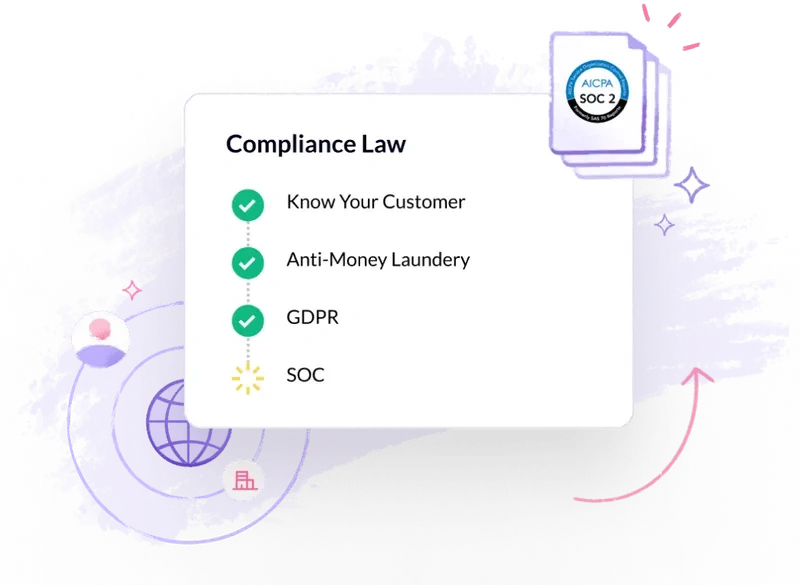
Want to stay ahead of regulatory shifts? Trust HyperVerge to keep your data secure and compliant. Book a demo now!
FAQs
1. What are the penalties for DPDP?
The DPDP Act imposes fines for violations like unauthorized data processing, security failures, and non-compliance with user rights. Penalties range from ₹10,000 (for individuals) to ₹250 crore (for major breaches by businesses).
2. What is the maximum penalty bracket for a violation under the DPDP Act, 2023?
The highest fine under the DPDP Act, 2023 is ₹250 crore for failing to prevent personal data breaches. Other violations, like mishandling children’s data, attract fines of up to ₹200 crore.
3. Who decides the penalties and how does the process work?
The Data Protection Board of India (DPB) investigates complaints, conducts inquiries, and imposes fines based on severity, impact, and corrective actions taken.
4. What is a ‘Significant Data Fiduciary’ and why do they have stricter rules?
Large entities handling sensitive data are Significant Data Fiduciaries (SDFs). They face stricter regulations, including appointing a Data Protection Officer, conducting audits, and impact assessments to minimize risks.


